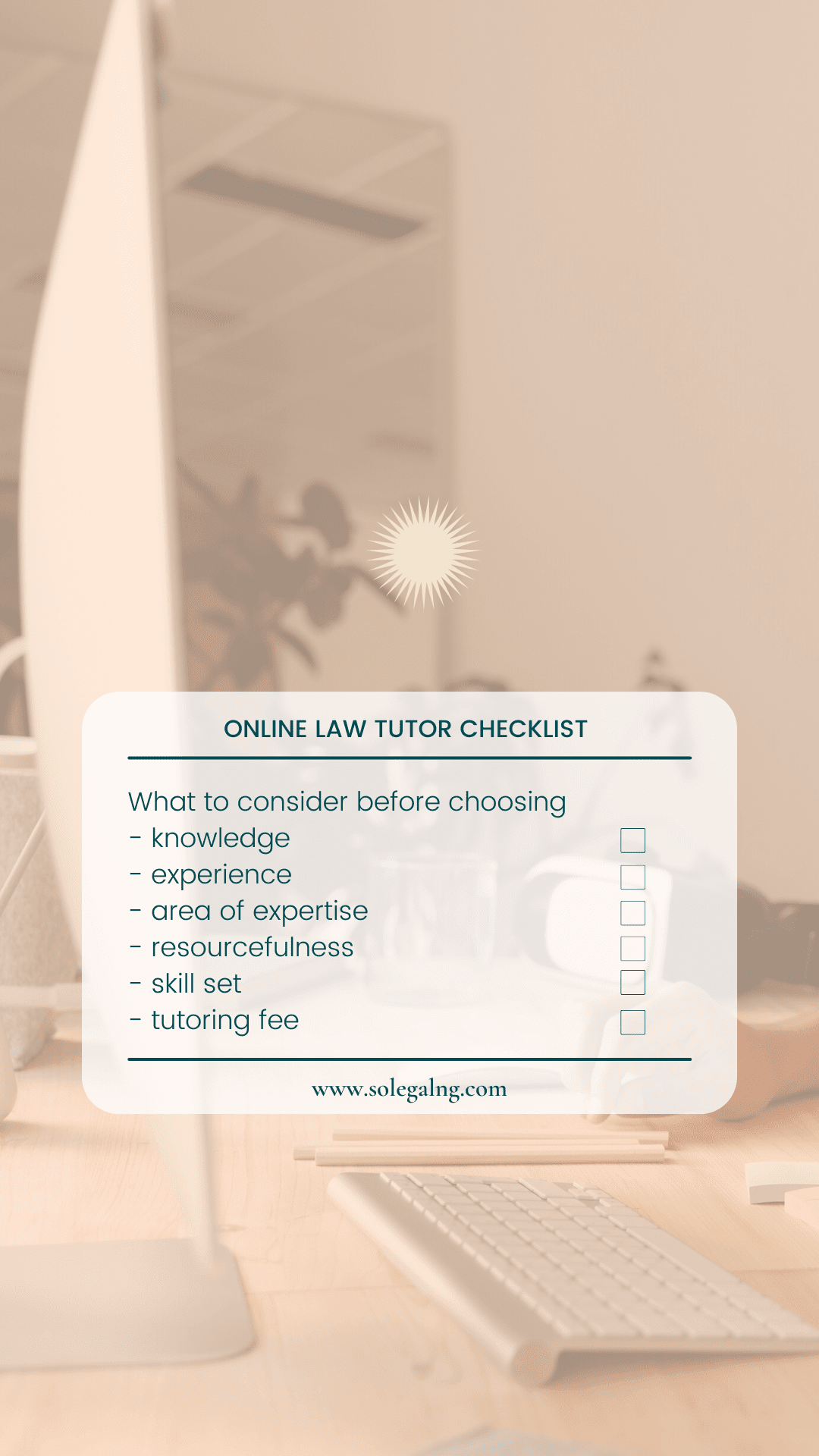A tutor can help you greatly improve your academic performance – only if you choose right. There are tons of Law tutors online to choose from and it may be challenging to choose one out of the crowd to help you boost your grades. To help you decide, this article highlights 5 things to consider when choosing online Law tutors.
5 Things to Consider When Choosing Online Law Tutors

1. Knowledge and Experience
Obviously, your tutor should have more knowledge in your course or required subjects. That way, they can explain concepts in a way that is easy for you to understand and answer any questions you may have. It’s like the famous Latin maxim – nemo dat quod non habet (you cannot give what you don’t have).
As for experience, it is the more, the better. Experience makes tutors more seasoned and capable of handling a larger variety of students and situations. The more experienced your tutor is, the more likely they are to tutor you efficiently.
2. Area of expertise
A Law tutor may be able to tutor you on general Law courses but often, they would have an area of law in which they specialise. This may be Family Law, Business Law, Jurisprudence, or something else.
If possible, choose an online Law tutor who has specialised expertise in the field of Law that you’re interested in. And if not, ensure that the tutor has sufficient expertise across the courses you require.
3. Teaching method
Not all tutors teach the same way. Some use prerecorded classes while others would tutor in live video conferences. Some may use visual aids while others would not. And while some may share access to their library or resource stack, many others would not.
It is important to know what your tutor’s method of teaching is and if it matches your method of learning. That way, you can have smooth learning sessions and would be more likely to improve your grades.
4. Resourcefulness and skill set
Beyond certificates and degrees, your tutor’s resourcefulness or lack of it can impact you either positively or negatively. A resourceful tutor would have proper tools for teaching – relevant case notes and reports, textbooks and journal articles, and so on.
When choosing a tutor, watch out for skills such as good research skills, writing, and speaking skills. These are usually pointers to a skilled Law tutor.
5. Tuition fee
Tuition fee varies from tutor to tutor. While some offer tutoring packages with one-time or installmental payments, others charge by the hour.
Before choosing a tutor, it is important to check their rates against your budget and their capabilities, to know which payment system would work best for you.
Questions to Ask Your Prospective Online Law Tutor
Many tutoring sites usually factor in the above metrics when matching you with your tutor. On the other hand, however, some tutoring platforms do not match you with a tutor but allow tutors to bid for your tutoring request. If that is the case, then the following are questions to ask your prospective tutors before choosing which one to go with.
- What are your qualifications?
- Do you have any area(s) of specialization? Which?
- How long have you been tutoring for?
- What are your fees?
- What teaching methods do you use?
- Will you provide study materials and other resources?
- What does your schedule look like?
Bottom Line

It doesn’t have to be a hit or miss situation when you set out to choose an online tutor. Your first online Law tutor can turn out to be just the right fit for you and get to help you long term.




